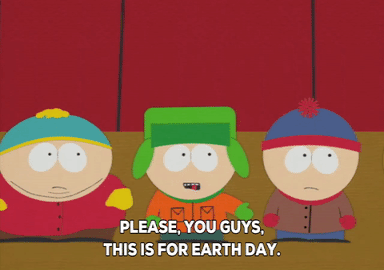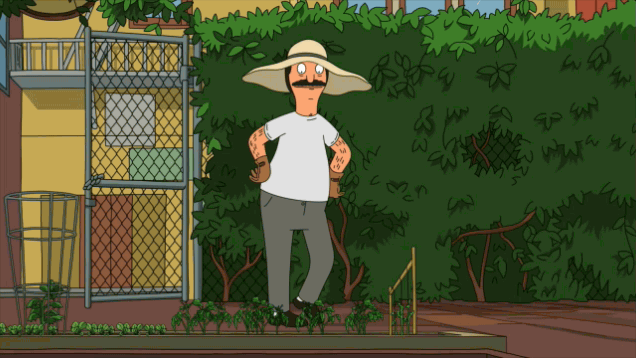
Trying to elicit change can seem incredibly overwhelming ‘cos there’s so much to stress about. From climate change to rising sea levels to animal extinction and pollution, it’s hard to organise a plan of action effectively protecting our planet.
Especially in the face of a pandemic.
But you’d marvel at how easy it can be to make a few daily alterations in your lifestyle, becoming a lot more eco-conscious. To help you feel empowered by the potential for real impact, we’ve put together a few pro tips for improving your diet and general food habits for the benefit of the environment. Alrighty, let’s tuck in.

Grow your own food
Planting a small garden in your own backyard is an excellent way to become more environmentally friendly – you can water it super efficiently, and your ‘food miles’ will all but disappear. It’s nice to get better acquainted with some of your favourite fruits and veggies too. Find out which ones produce flowers that the local birds and bees like, so you can double your impact by supporting local wildlife while you’re at it.
By growing your own stuff, you can also limit the number of chemicals you use (if any) on your plants, which is all ’round better for you and the earth. Not to mention fresh veggies pack a heap more flavour.

Be wary of food packaging
Food packaging can have devastating effects on the environment as it can lead to large quantities of waste, clogging up our landfills and ocean. When you’re shopping for groceries, try to avoid products that come with unnecessary packaging and take back the power you have as a consumer.
And while pre-made meals and delivery services are the trends right now, try to avoid companies using excessive packaging. Instead, opt for more thoughtful companies that invest in corrugated cardboard, glass containers, bamboo or stainless steel to transport their products.
Consider going plant-based
Plant-based diets are becoming increasingly more popular, with our food and environmental attitudes evolving. Remember when people thought meat was an essential part of our diet? Now, we know there are plenty of ways we can still meet our nutritional needs without harming animals or polluting the planet. (Nearly 60% of the food sector’s greenhouse gas emissions come from meat production, after all.)
A tonne of restaurants and cafes are getting in on the action by offering heaps of plant-based meals on their menus, making this diet extremely tangible. And their customer base is growing. According to consumer research by Nielsen, nearly half of all Australians are actively eating less or no meat.
If you’re looking for a bit of gourmet (or everyday) inspo, check out VegKit, as they offer a bunch of meat-free meals that are super easy to whip up.

Cut out waste
There are a few different ways you can reduce food waste. Try writing down a grocery list and stick to the list so you don’t make impulse food purchases. It’s also wise to avoid shopping on an empty stomach, as may you end up buying the entire sweets and confectionery aisle, I mean…..I heard from a friend.
Another solid idea is to learn how to preserve and repurpose foods. For example, rather than tossing out coriander stems, chop them up and boil them with a pot of rice, creating a delicious side.
To regrow green onions, pop them in a glass jar with water roots and green parts covered. Change over the water every few-or-so days and watch these babies grow!
Lastly, food wastage can be minimised by de-cluttering your fridge and pantry. How many times have you gone to the shops to buy something, only to find you have six bottles of it at home already? By re-organising your shelves, you can prevent food spoilage, as you can clearly see what foods you’ve purchased and what needs to be used immediately before expiration.
Honestly, your pantry has probably needed a tidy for a while now. Not shaming anyone, just assuming.



